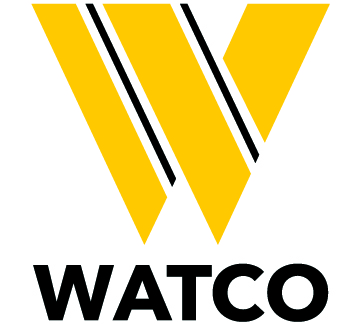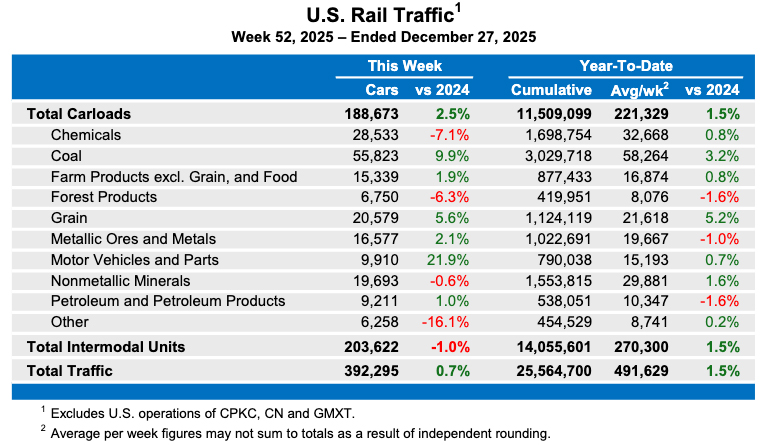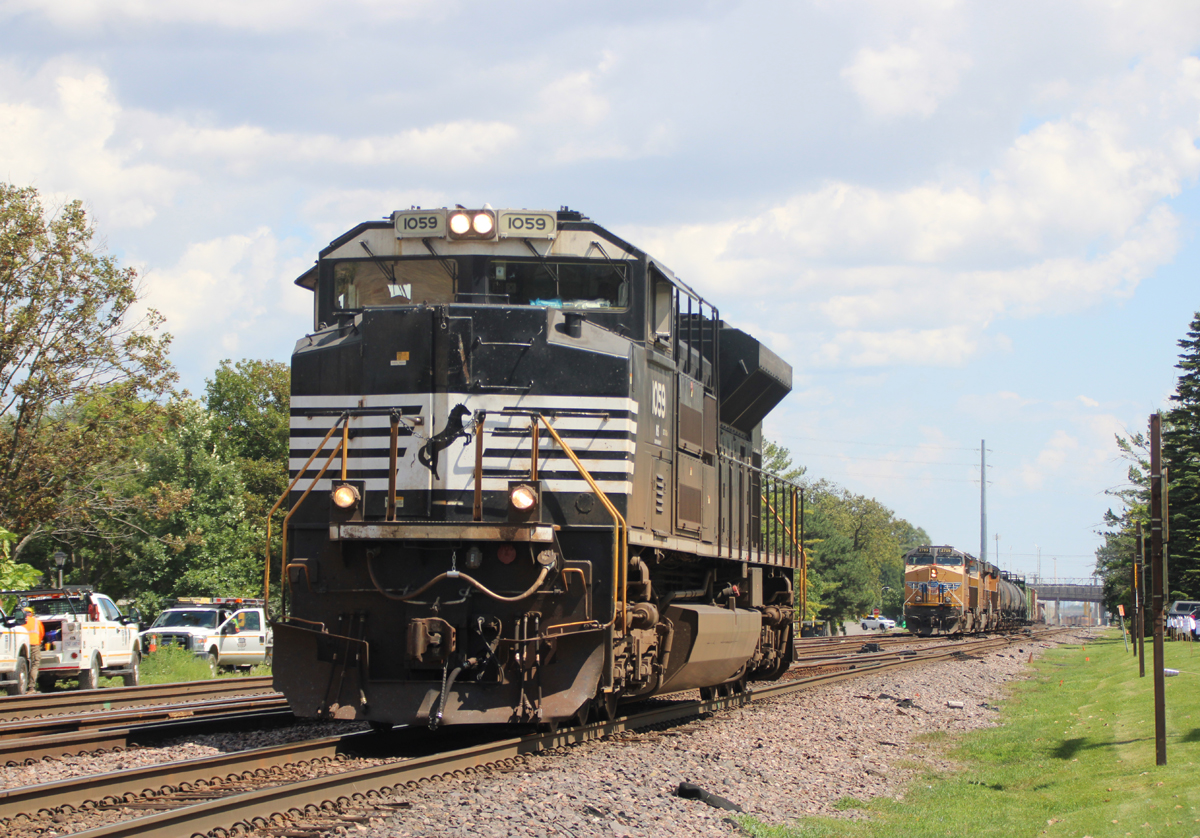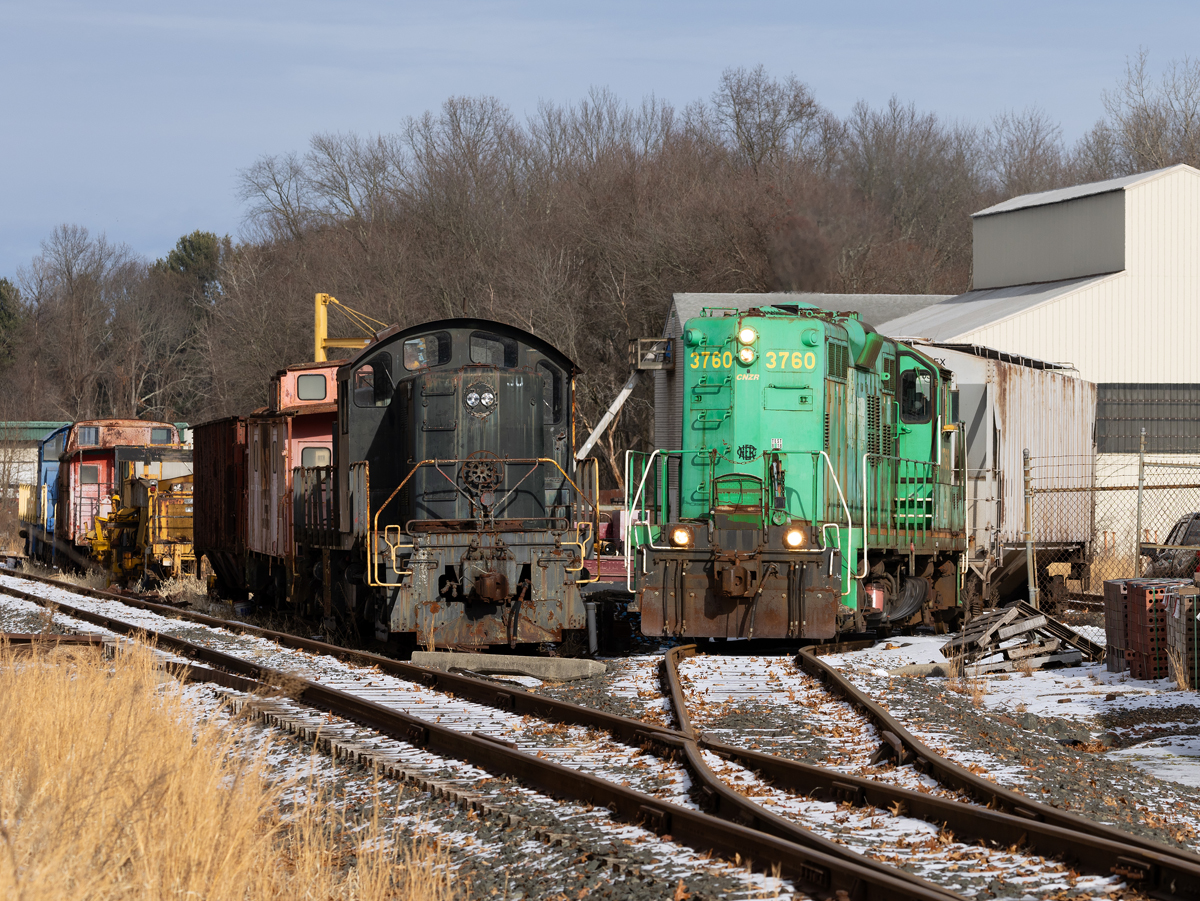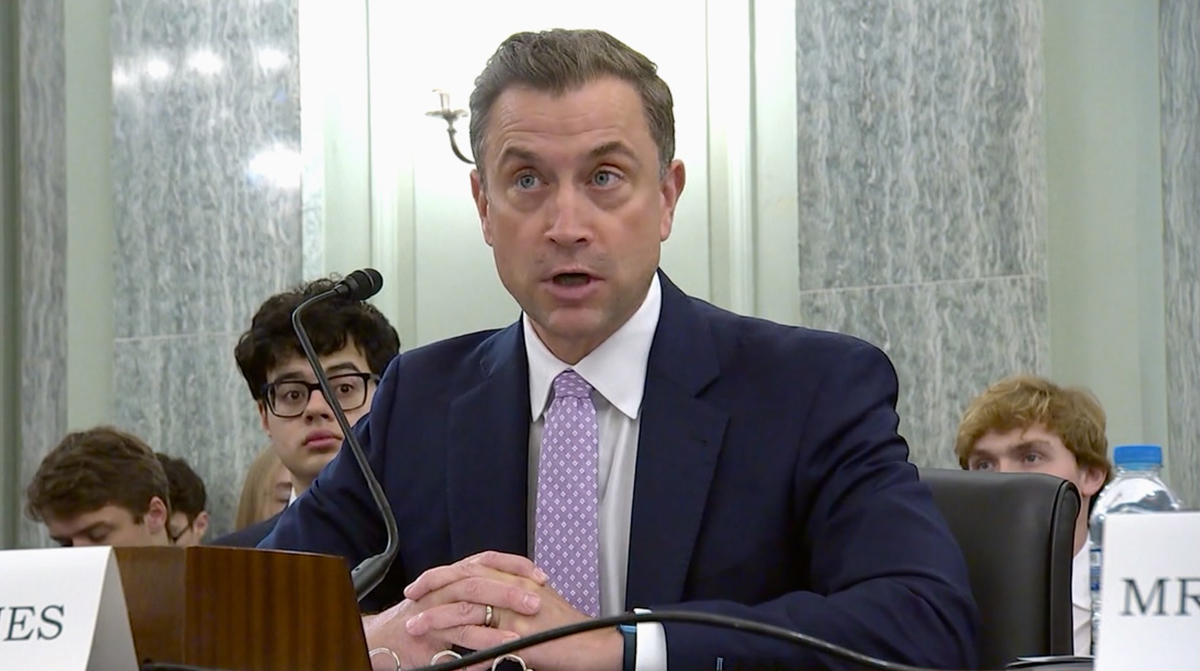
WASHINGTON — Calls for regulations allowing automated track inspections and increased grant funding to help short lines were among topics discussed today (June 18) in a U.S. Senate subcommittee meeting on the rail industry.
The hearing by the Subcommittee on Surface Transportation, Freight, Pipelines, and Safety, “On the Right Track: Modernizing America’s Rail,” sets the stage for what might be included in a 2026 transportation reauthorization.
Among the four witnesses were Association of American Railroads CEO Ian Jefferies, who made the call for the regulations permitting automated inspection. In an exchange with subcommittee chairman Todd Young (R-Ind.), Jefferies noted the new technology could be implemented more frequently on trains in revenue service, rather than “shutting down the railroad” for manual inspections. “Let’s continue to prove out that ATI will result in a higher level of inspection,” Jeffries said. With an eye toward leveling the infrastructure investment playing field, he also advocated for overhauling the soon-to-be-bankrupt Highway Trust Fund to make trucks that damage roadways bear more of the financial burden.
Peter Gilbertson, CEO of Anacostia Rail Holdings, also representing the American Short Line and Regional Railroad Association, urged both more and more predictable funding for Federal Railroad Administration’s Consolidated Rail Infrastructure Safety and Improvement program and other grant programs benefitting short lines. He said a CRISI grant helped fund RailPulse telematics technology being installed on 100 cars for Anacostia’s South Shore Freight to meet the needs of the Indiana steel industry. He also told the Commerce Committee’s ranking member, Sen. Maria Cantwell (D-Wash.), how the program helped upgrade bridges on a Minnesota short line that made unit grain trains to ports in her state possible. But he urged the FRA to streamline the permitting process.
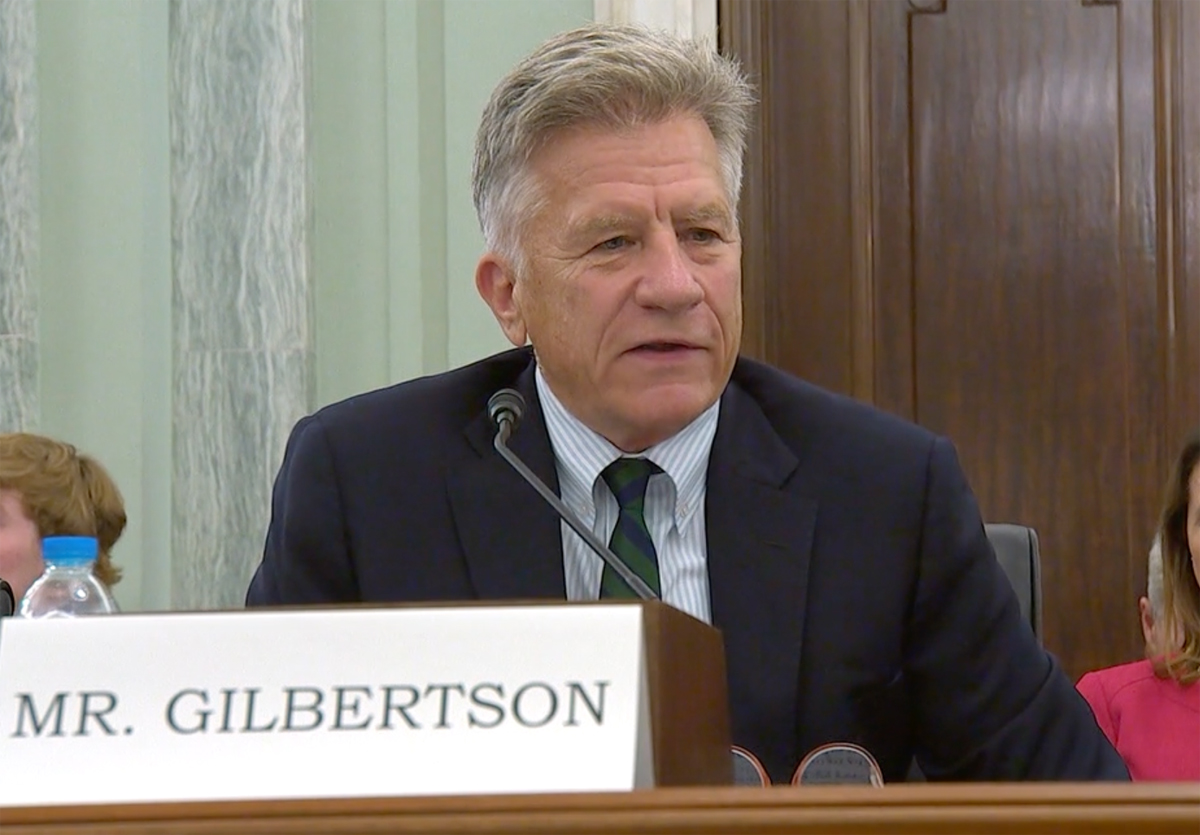
Cantwell echoed National League of Cities CEO and Executive Director Clarence Anthony’s call for continued spending on highway grade crossing elimination, recounting an example of a pedestrian fatality in Edmonds, Wash., that caused a BNSF freight train to block a ferry entrance for two hours. Noting that there have been 4,000 derailments since 2020, Anthony said he was “willing to support modernized track inspection technology,” but not necessarily supplant manual inspections.
Brightline Holdings senior advisor, Husein Cumber, urged lawmakers to increase the cap on private activity bond funding from $30 billion to $45 billion, and to permit private operators to receive discretionary grants directly for their projects rather than requiring a public intermediary to be involved — as the CRISI program currently allows. Cumber also called for streamlining of environmental permitting process when new infrastructure is built within the footprint of an existing rail right-of-way.
Passenger fact check
In what amounted to cheerleading for the private venture prior to a tirade about Amtrak “losing hundreds of billions of dollars and objectively providing terrible service,” freshman U.S. Sen. Bernie Moreno (R-Ohio) attempted to prove a pre-determined point by asking Cumber to compare the average speed of Miami-Orlando Brightline trains with Amtrak’s between the same cities. Cumber responded by estimating 110 mph for Brightline versus 40 mph on Amtrak.
Brightline’s top speed — not average, which includes stops — is 110 mph for the West Palm Beach-Cocoa segment its trains share with Florida East Coast freights.On other segments, top speeds are 79 mph (Miami-West Palm) and 125 mph (Cocoa-Orlando International Airport). Amtrak trains are authorized for 79 mph on portions of CSX, SunRail, and Tri-Rail tracks.
News Wire compared the two services (with fares for Thursday, June 19):
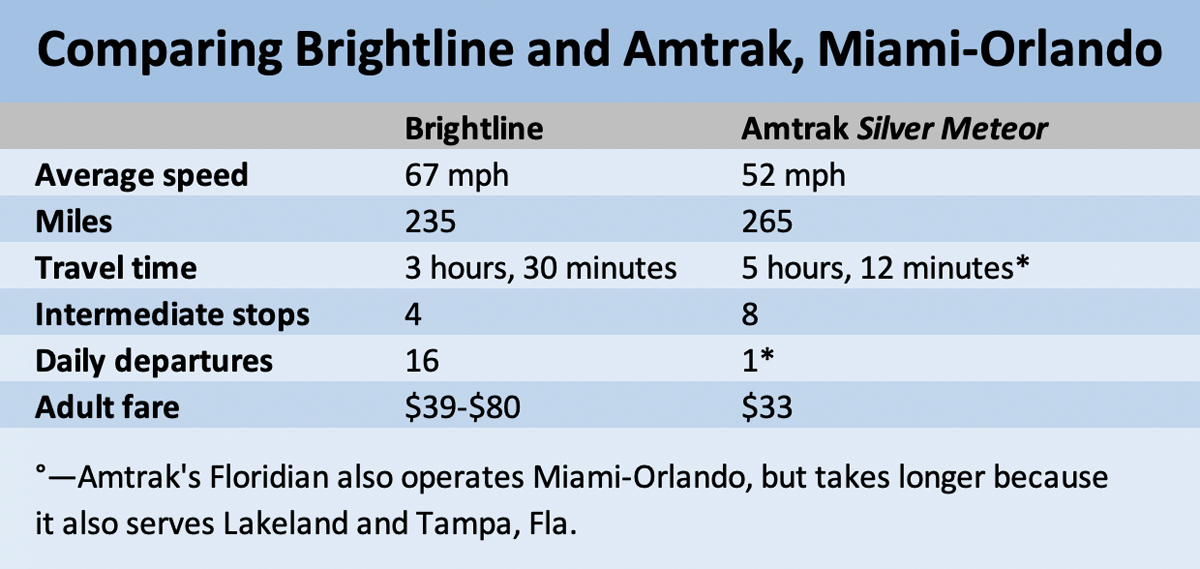
Although no Amtrak witness was present, AAR’s Jeffries essentially came to that company’s defense by noting, “[Though] there are many parts of the country where there is lots of opportunity for private enterprise to thrive, Congress has also made the decision that it also wants to provide other services that are inherently money-losing … so its probably not either-or but situational.” Not swayed, Moreno concluded by saying, “Providing air service is also a public service, but there is no government-owned airline.”
Sen. Edward Markey (D-Mass.) suggested to Cumber that Brightline should allow its employees to organize under the Railway Labor Act as the National Mediation Board held, but Cumber argued that the National Labor Relations Board should have jurisdiction because Brightline is not a carrier subject to the RLA. “I want to be clear that this is a jurisdictional dispute. This is not a dispute on whether we want our employees to have the ability to organize,” he contended.
The subject of whether Brightline trains were on track to be “profitable” never came up in the one-hour, 45-minute hearing. Near its conclusion. Moreno — who noted that he is, like Young, a former car dealer — decried the unreliability and delays inherent in public transit to advocate for relaxing regulations that made new automobiles too expensive. Among the regulations he wanted to roll back was a requirement that new cars may not operate with alcohol-impaired drivers; Sen. Markey forcefully objected, saying, “We should not be repealing that kind of [safety] protection.
The Committee’s website contains a video of today’s proceedings, as well as the opening testimony of the four witnesses.






